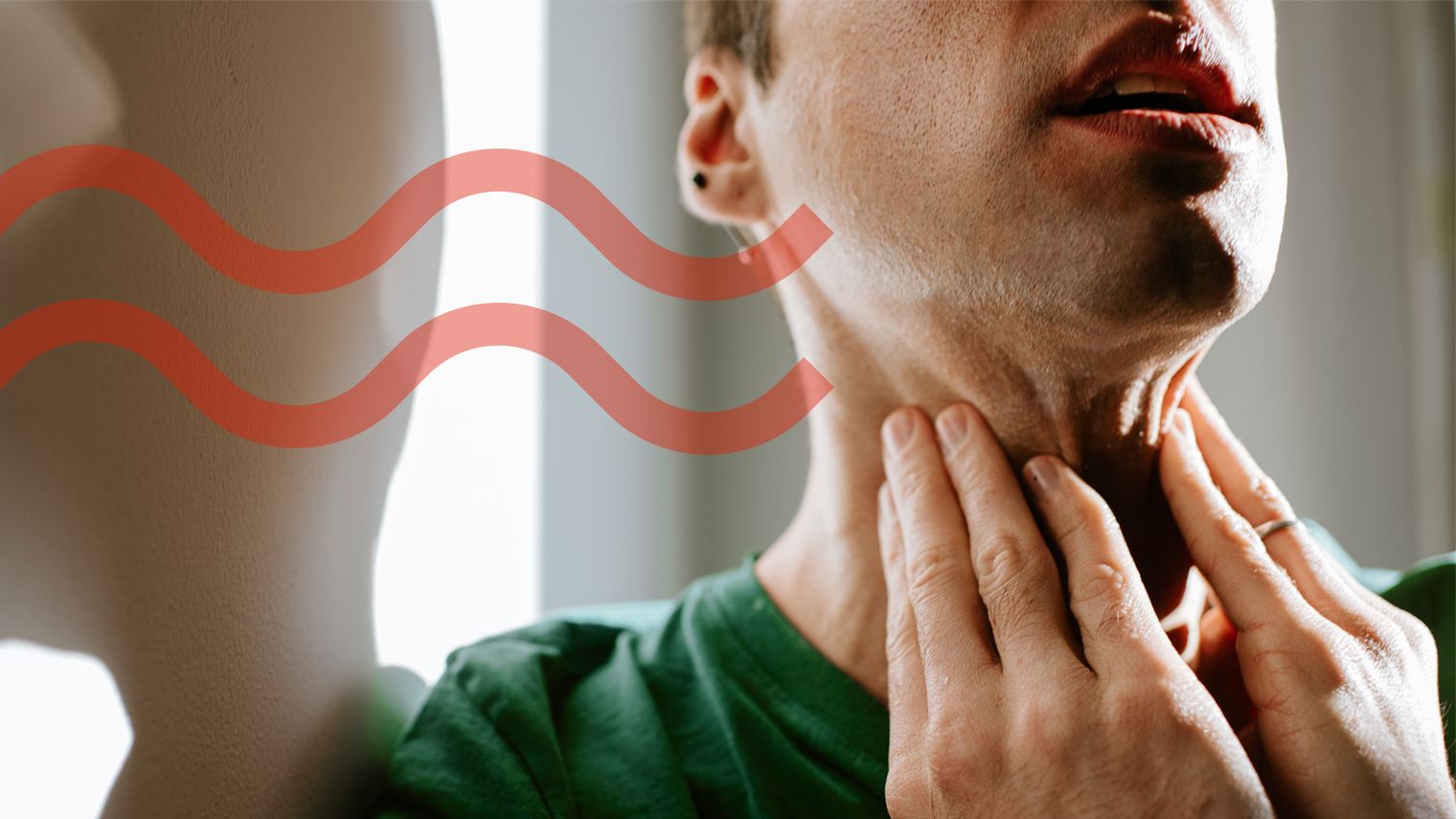3 Ways I Manage Thrush Caused by COPD Medications
January 23, 2024
Content created for the Bezzy community and sponsored by our partners. Learn More

Photography by Catherine Falls Commercial/Getty Images
I always thought thrush was something only babies and little kids got. When I started regularly using steroid inhalers, I learned this was far from true.
Steroids, taken orally and especially when inhaled, can be lifesavers for those of us with chronic obstructive pulmonary disease (COPD), but they can also put you at risk for repeated bouts of thrush. I’ve been dealing with frequent thrush for as long as I’ve been using these daily inhalers.


How to know if you have thrush
Thrush is caused by a fungal (yeast) infection. Using inhalers and having a compromised immune system, like I do, can increase your risk of developing thrush. Unfortunately, there’s no limit to the number of times you can get it.
It’s not always easy to know if you have thrush. Oral thrush warning signs are less obvious than the standard cottage cheese-like bumps you might see in a baby’s mouth. It’s also often described as covering the tongue.
I usually get subtle patches, like a white rash, throughout my mouth and into my throat. Most of the time, I have symptoms before I even notice the spots.
Thrush causes itching or burning in your mouth. I’ve had both — a loss of taste and a dry mouth. It can also cause pain when trying to eat or swallow. It brings a strange sensation like I need to cough.
If you have COPD, you probably take inhalers like me. There are things you can do to reduce the chance of getting frequent thrush.
Tips for managing thrush
1. Don’t ignore thrush symptoms
It’s important to recognize thrush and get treatment. It’s annoying on your tongue or in your mouth, but it can spread to your throat and esophagus. I’ve had that happen, and it’s not fun. I had my tonsils out as a kid, so they’re not affected, but my thrush has gone to my larynx (voice box), and I’ve lost my voice from it.
Thrush in the esophagus is even more painful and dangerous. It will make it difficult to swallow and can cause problems in your digestive system. I had this once, and it took me months to get rid of the swallowing issues and pain.
The first time you suspect thrush, speak with your doctor immediately and plan how to treat it. I always have Nystatin rinse and fluconazole tablets (both prescriptions) on hand. I’ve also learned some things that can keep it from getting bad or ease the discomfort while I’m waiting for the medication to work.
2. Get an inhaler spacer (and my trick)
If you have COPD, you probably take inhalers like me. There are things you can do to reduce the chance of getting frequent thrush.
One option is to get a spacer for your inhaler. The idea of a spacer is to get more of the medication into your lungs and not in your mouth. With an OptiChamber spacer, you’ll put the inhaler into one end of a long tube and take your breaths at the other end.
They also make MicroSpacers, which are small plastic extenders that go on your inhaler. This gives a little extra extension to your inhaler. I actually decided to try both.
I put the MicroSpacer at the end of the OptiChamber. It gives me a little more of a chance of getting the medication directly into my lungs.
My doctor was so impressed he told some of his other patients about it! Most importantly, it has reduced how often I get thrush. You can ask your doctor or pharmacist how to use your spacer and check out this helpful illustration published by the CDC.
3. Home remedies for thrush
I’m sure you’ve been told to rinse your mouth out after using your inhaler. I’ve never personally found a water rinse to be enough. Adding in brushing and flossing your teeth can definitely increase the effectiveness.
My doctor also mentioned rinsing with a diluted 3% hydrogen peroxide solution. I thought it was too much to remember to mix, so I bought a generic “mouth sore” rinse containing hydrogen peroxide.
Other things that can help in a rinse are salt water, baking soda, and apple cider vinegar. I’ve heard lemon juice is an option. Since I’m allergic to citrus, I can’t offer any experience with that.
Eating yogurt, which is a probiotic, can also be helpful with thrush. Be careful. Sugar can aggravate the fungus. I’ve learned to eat an unsweetened brand of yogurt instead.
Of course, everyone is different. Connect with your healthcare professional about the type of rinses that might work best for you.
Takeaway
If you’ve followed your prescription and home remedies and thrush is still bothering you after a week, call your doctor. You’ll want to get checked and make sure it hasn’t spread.
Medically reviewed on January 23, 2024
1 Source


Like the story? React, bookmark, or share below:
Have thoughts or suggestions about this article? Email us at article-feedback@bezzy.com.
About the author